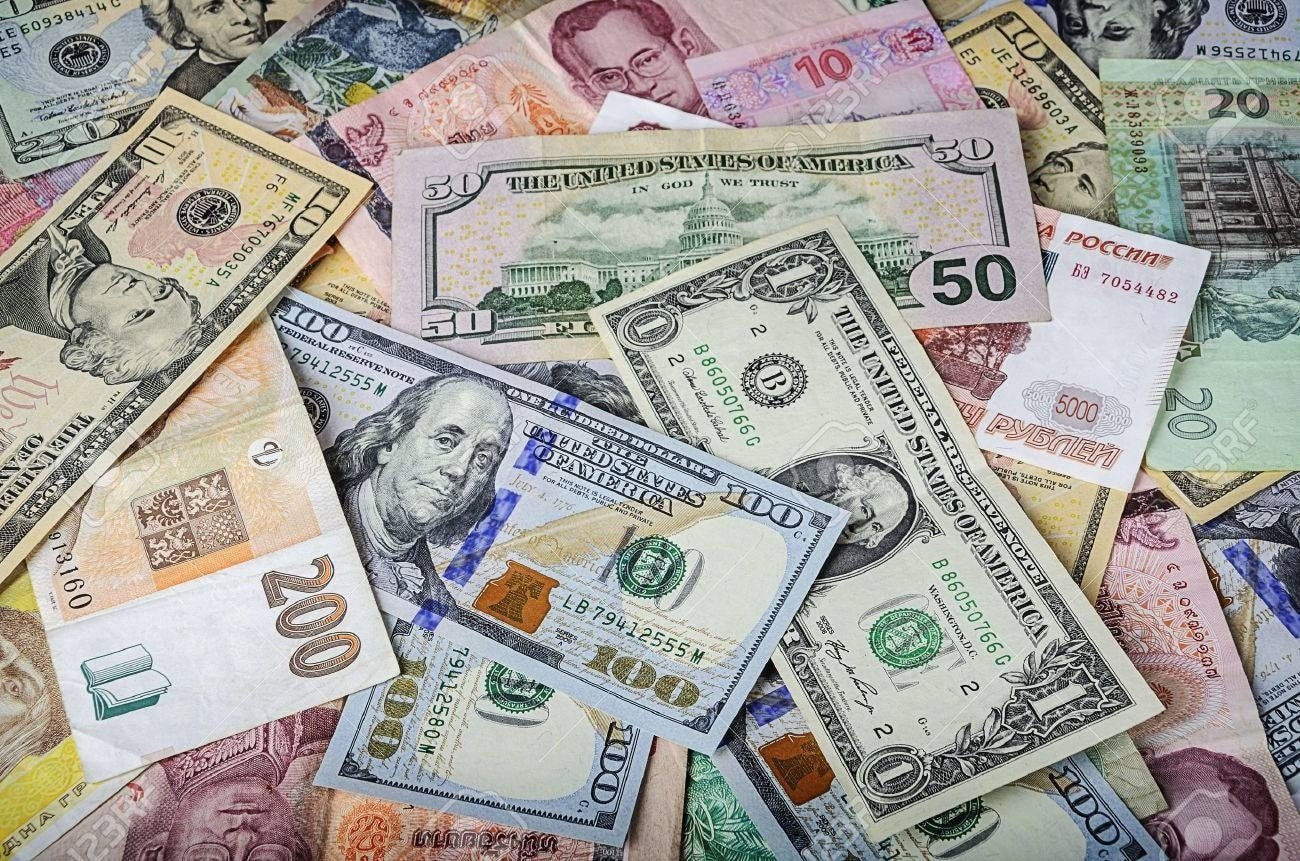World currency exchange rates
In the US market, the US Dollar Index (DXY) measuring the greenback's fluctuations against six major currencies (EUR, JPY, GBP, CAD, SEK, CHF) decreased by 0.46% to 99.64.
The dollar has been rising inversely to U.S. Treasury yields, which fell last week even as yields rose. That has fueled speculation that investors are moving money out of the country because of concerns about the impact of trade tariffs.

The Trump administration's tariff policies are a major shock to the US economy , which could prompt the Federal Reserve to cut interest rates to prevent a recession even as inflation remains high, Fed Governor Christopher Waller said on April 14.
Americans' expectations for short-term inflation hit their highest level since the fall of 2023 in March, according to a report from the New York Federal Reserve on April 14.
The euro was little changed on the day at $1.1359. It hit $1.1473 late last week, its highest since February 2022.
The dollar fell 0.39 percent to 142.93 against the Japanese yen. The dollar had earlier fallen to 142.05 on April 11, its lowest level since September.
US President Donald Trump said on April 13 that he would announce tariffs on imported semiconductors this week, adding that there would be flexibility for some companies in the sector.
The White House had previously granted exemptions from high tariffs on smartphones, computers and other electronics imported largely from China on April 11. However, US Commerce Secretary Howard Lutnick said on April 13 that they would face separate new tariffs along with semiconductors in the next two months.
On April 14, Mr. Trump also said he could grant exemptions to auto-related tariffs that have already taken effect.
Japanese Prime Minister Shigeru Ishiba said Japan has no plans to make concessions or rush into a deal in upcoming tariff talks with the Trump administration. Japanese Economy Minister Ryosei Akazawa also said foreign exchange issues would be resolved between Finance Minister Katsunobu Kato and U.S. Treasury Secretary Scott Bessent.
Against the Swiss franc, the dollar fell 0.18% to 0.814 francs. Meanwhile, the British pound rose 0.88% to 1.3195 USD. The Australian dollar rose 0.84% to 0.6338 USD, extending last week's gain of more than 4%.
The offshore yuan fell 0.35% to 7.307. The currency hit a record low last week as the trade war between the US and China escalated. Data showed China’s exports surged in March as factories rushed to get products shipped before the latest US tariffs took effect.
Domestic foreign exchange rates
In the domestic market, at the beginning of the trading session on April 15, the State Bank announced the central exchange rate of the Vietnamese Dong against the USD decreased by 37 VND, currently at 23,886 VND.
* The reference exchange rate at the State Bank's transaction office for buying and selling has slightly decreased, currently at: 23,692 VND - 26,080 VND.
USD exchange rates at some commercial banks are as follows:

* The EUR exchange rate at the State Bank's buying and selling exchange center increased slightly, currently at: 26,905 VND - 29,738 VND.
EUR exchange rates at some commercial banks are as follows:

* The Japanese Yen exchange rate at the State Bank's exchange office increased slightly, currently at: 166 VND - 183 VND.
The YEN exchange rate at some commercial banks is as follows:

Source: https://baodaknong.vn/ty-gia-ngoai-te-hom-nay-15-4-dong-usd-tiep-tuc-giam-249391.html



![[PHOTO] Hanoi fences off demolition of "Shark Jaws" building](https://vphoto.vietnam.vn/thumb/1200x675/vietnam/resource/IMAGE/2025/5/25/1b42fe53b9574eb88f9eafd9642b5b45)
![[Photo] Funeral of former President Tran Duc Luong in Quang Ngai](https://vphoto.vietnam.vn/thumb/1200x675/vietnam/resource/IMAGE/2025/5/25/ccf19a3d8ea7450bb9afe81731b80995)
![[Photo] Welcoming ceremony for Prime Minister Pham Minh Chinh and his wife on an official visit to Malaysia](https://vphoto.vietnam.vn/thumb/1200x675/vietnam/resource/IMAGE/2025/5/25/dc30203c3ae24da3990266ec3b29bb2d)
![[Photo] Ea Yieng commune settlement project abandoned](https://vphoto.vietnam.vn/thumb/1200x675/vietnam/resource/IMAGE/2025/5/25/57a8177361c24ee9885b5de1b9990b0e)
![[Photo] French President Emmanuel Macron and his wife begin state visit to Vietnam](https://vphoto.vietnam.vn/thumb/1200x675/vietnam/resource/IMAGE/2025/5/25/03b59c7613144a35ba0f241ded642a59)



















































































Comment (0)